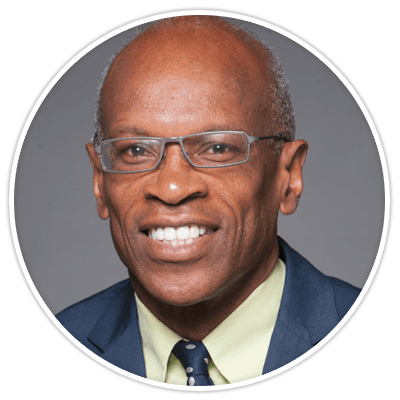 MAURICE COX
MAURICE COX
Maurice Cox is a nationally acclaimed community designer and leader of the public interest design movement. He is widely respected for his ability to incorporate active citizen participation into the urban design and planning process. Maurice has a reputation for developing bold–yet achievable–plans that become tools for civic discourse and empowerment, embraced by diverse sectors of the community.
Currently the Planning and Development Director for the City of Detroit, Maurice is in charge of the long-term vision for a redeveloped Detroit—improving Detroit’s neighborhoods, developing strategies to boost stable areas of the city with new business and residential development, and devising uses for the vast tracts of vacant lots and other city-owned properties.
Previously, Maurice served as associate dean for community engagement at Tulane University’s School of Architecture and director of the Tulane City Center, a university-affiliated practice operating at the intersection of design, urban research and civic engagement throughout New Orleans. He also served as design director of the National Endowment for the Arts (NEA) from 2007-2010, where he led the NEA’s Your Town Rural Institute, the Governors’ Institute on Community Design, the Mayors’ Institute on City Design, and oversaw grants to the design community across the United States.
 ANTIONETTE D. CARROLL
ANTIONETTE D. CARROLL
Antionette Carroll is the Founder and CEO of Creative Reaction Lab, a nonprofit social enterprise that educates, trains, and challenges cities to co-create solutions with Black and Latino populations to design healthy and
racially equitable communities. Within this capacity, Antionette has pioneered a new form of creative problem solving called Equity-Centered Community Design. Throughout her career, Antionette has worked for nonprofits working for social justice, human rights, and diversity and inclusion. These experiences led to her background as a social entrepreneur, non-profit leader, and design activist. Antionette’s personal mission in life is to challenge standards, make change, and champion approaches resulting in foundational and community impact.
Antionette was named the Founding Chair of the Diversity and Inclusion Task Force of AIGA: The Professional Association of Design in 2014. Currently, she’s the Chair Emerita of the Task Force working on long-term strategic initiatives such as the Design Census Program with Google and national Inclusivity in Design Summit. With her encouragement, AIGA created the first Racial Justice by Design program, with Antionette co-organizing and assuming the role of online producer for the national Town Hall in 2016. At the local level, she is currently serving as President Emerita of AIGA St. Louis and co-founder of the Design + Diversity Conference.
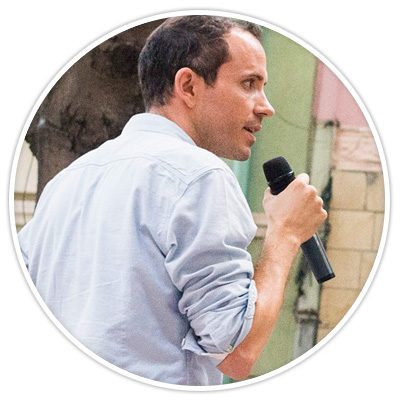 GAVIN KROEBER
GAVIN KROEBER
Gavin Kroeber is an artist and writer based in St. Louis and head of the interdisciplinary curatorial office The Studio for Art & Urbanism. His projects and writings, which poach from visual art, urban theory, and performance, are concerned broadly with cultural dynamics of power and, in particular, with their expression in the poetics of place. He is Artistic Director of New Cities, Future Ruins, a multi-year arts initiative that invites artists, designers, and thinkers to re-imagine and engage the extreme urbanization of cities in America’s Western Sun Belt. Along with Rebecca Uchill, Gavin is the co-founder of the nomadic curatorial platform Experience Economies. Previously, Gavin was Producer at public art presenter Creative Time (New York) from 2005 to 2010.
In St. Louis, he recently initiated At the Edge of Everything Else, a hybrid social club and lecture series for artists, architects, urbanists and other critical spatial practitioners that will run in St. Louis for twelve weeks this fall. Gavin was recently awarded one of Washington University’s Mellon Foundation-funded Divided City grants to organize The Autumnal City, a festival of art and ideas exploring urbanism and futurism, in collaboration with visual artist Tim Portlock and scholar Rebecca Wanzo. Other projects in development include the performance-lecture Verdant Cities: A Warning and A Suburb of the Suburbs, a curatorial research project designed to develop strategies for interventionist public art and tactical design projects that engage America’s suburbanized landscape.
DEBORAH J. PATTERSON
 Deborah Patterson recently retired as vice president of global contributions and employee engagement at Monsanto. She is currently a senior consultant with the company and the STEM Ecosystem. Prior to joining Monsanto, Deborah was chief executive officer of the American Red Cross of Eastern Missouri. She also served in St. Louis City government, holding two cabinet positions concurrently: executive director of the St. Louis Agency on Employment and Training and director of the Community Development Agency. As director of development, Deborah was the mayor’s top advisor for housing and economic development.
Deborah Patterson recently retired as vice president of global contributions and employee engagement at Monsanto. She is currently a senior consultant with the company and the STEM Ecosystem. Prior to joining Monsanto, Deborah was chief executive officer of the American Red Cross of Eastern Missouri. She also served in St. Louis City government, holding two cabinet positions concurrently: executive director of the St. Louis Agency on Employment and Training and director of the Community Development Agency. As director of development, Deborah was the mayor’s top advisor for housing and economic development.
Deborah attended the University of Missouri-St. Louis and has participated in the Harvard Kennedy School Senior Executives in State and Local Government program and the Leadership St. Louis program. Her past community service includes board involvement on several local organizations, including the United Way of Greater St. Louis, president of the board of FOCUS St. Louis, and member of City+Arch+ River Design and Construction Committees. She currently serves on the boards of directors for Barnes-Jewish Hospital, St. Louis Public Library Foundation, St. Joseph’s Academy, the Pulitzer Arts Foundation, and the Board of Delta Dental of Missouri.
MARK W. JOHNSON, FASLA
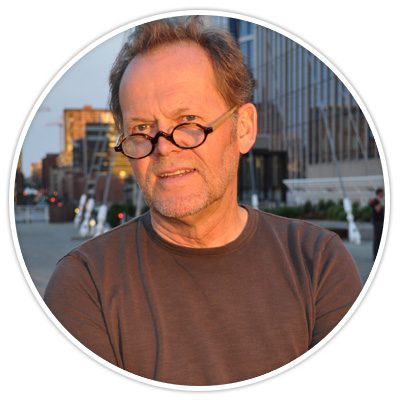 Mark Johnson is a leading landscape architect and urban designer with expertise in the design of public spaces and institutional landscapes across the country. As the founder of Civitas—a practice of urban designers, architects, and landscape architects engaged in strategic planning for urban change and project design for built works—he has led the design of nearly $1 billion in built works.
Mark Johnson is a leading landscape architect and urban designer with expertise in the design of public spaces and institutional landscapes across the country. As the founder of Civitas—a practice of urban designers, architects, and landscape architects engaged in strategic planning for urban change and project design for built works—he has led the design of nearly $1 billion in built works.
Mark is a recognized thought leader in the regeneration of inner city and brownfield areas. Foremost among these is his leadership in the regeneration of Denver’s Stapleton International Airport, a relationship and ongoing work that has lasted 30 years. He has achieved national recognition for complex urban projects that involve green infrastructure as a catalyst to economic, environmental and social change. He led the urban design for the Los Angeles River Revitalization Master Plan and is currently working with the New York Restoration Project and the Columbia University School of Public Health Research on an evidence-based plan for greening the South Bronx.
Mark is also a prominent designer of public space. He designed Larimer Square in 1987, which remains Denver’s most vibrant entertainment destination. He has become a leading practitioner and teacher regarding the role that nature and landscape play in activating, connecting, and enabling people.
ED HASSINGER, P.E.
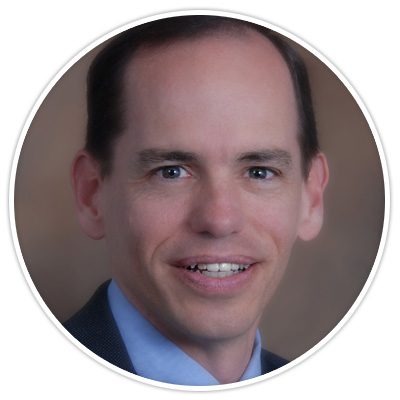 Ed Hassinger is the Chief Engineer of the Missouri Department of Transportation. He oversees MoDOT’s transportation planning, design, construction, maintenance, and operations activities statewide. Ed began his MoDOT career in 1984 as a design engineer in the Bridge Division. He’s also worked as a traffic engineer, bridge maintenance engineer, and assistant district engineer, served as St. Louis District Engineer for 12 years, and spent one year as the District Engineer in the Northeast District in Hannibal.
Ed Hassinger is the Chief Engineer of the Missouri Department of Transportation. He oversees MoDOT’s transportation planning, design, construction, maintenance, and operations activities statewide. Ed began his MoDOT career in 1984 as a design engineer in the Bridge Division. He’s also worked as a traffic engineer, bridge maintenance engineer, and assistant district engineer, served as St. Louis District Engineer for 12 years, and spent one year as the District Engineer in the Northeast District in Hannibal.
Ed has committed his career to innovative solutions for Missouri’s transportation system. In his capacity as St. Louis District Engineer, Ed served on the Technical Advisory Group for the CityArchRiver design competition and was one of the initial group to embrace the CityArchRiver
project. Ed worked with the region to complete the first phase of the project on time and on budget to set a positive tone for the project. This included the Park over the Highway that spans the depressed interstate traffic lanes allowing people to walk seamlessly from downtown to the Gateway Arch grounds and the Mississippi River. He also led the work on the Stan Musial Veterans Memorial Bridge, the rebuild of I-64, and the current work at the Poplar Street Bridge all of which has been a coordinated effort to improve mobility in the St. Louis region.
ADÈLE NAUDÉ SANTOS, FAIA
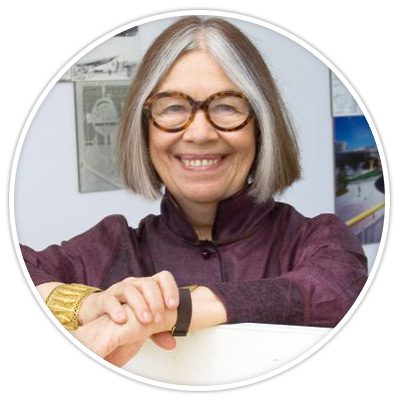 Adèle Naudé Santos is a Professor of Architecture and Urban Design at the School of Architecture and Planning at MIT. She also served as Dean of the school for ten years. Adèle formed the Center for Advanced Urbanism, where she has been a co-faculty director for a few years and is heading the research group in Housing Studies. Prior to MIT, she was professor at the University of California, Berkeley, College of Environmental Design where her academic focus was the design of housing environments.
Adèle Naudé Santos is a Professor of Architecture and Urban Design at the School of Architecture and Planning at MIT. She also served as Dean of the school for ten years. Adèle formed the Center for Advanced Urbanism, where she has been a co-faculty director for a few years and is heading the research group in Housing Studies. Prior to MIT, she was professor at the University of California, Berkeley, College of Environmental Design where her academic focus was the design of housing environments.
In addition to her academic work, Adèle is principal architect in the San Francisco-based firm, Santos Prescott and Associates. She takes a holistic approach to architecture, supported by her belief that people need more from the built environment than accommodation of functional requirements. Her architecture seeks to create environments that satisfy the human spirit.
Adèle’s belief that architecture be socially, as well as contextually, responsible can be seen in all of her projects, and particularly in her design of housing, a subject to which she has devoted much professional and academic effort. In her more than thirty years of practice she has been involved in the construction of hundreds of dwelling units on four continents.
ALLISON WILLIAMS, FAIA
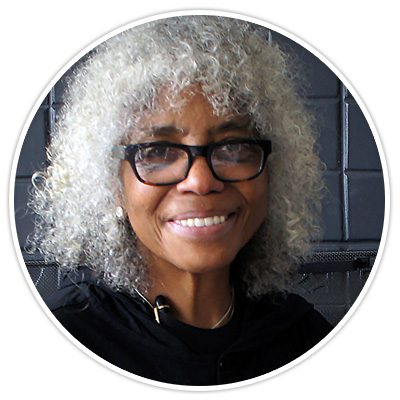 Allison Williams, an architect and urban designer, has amassed an international portfolio of large scale civic, corporate, and cultural buildings and urban places. In practice as a design leader at SOM, Perkins+Will, and AECOM, Allison’s inventive instinct, collaborative drive, and inspiring design approach have generated authentic, relevant buildings that poetically bridge culture, technology, and environment and convey the traditions of their audiences.
Allison Williams, an architect and urban designer, has amassed an international portfolio of large scale civic, corporate, and cultural buildings and urban places. In practice as a design leader at SOM, Perkins+Will, and AECOM, Allison’s inventive instinct, collaborative drive, and inspiring design approach have generated authentic, relevant buildings that poetically bridge culture, technology, and environment and convey the traditions of their audiences.
Significant among Allison’s work is the August Wilson Center for African American Culture, founded in celebration of an ethnically specific culture and marks a key intersection in Pittsburgh, Pennsylvania’s downtown cultural district. The US Port of Entry at Calexico, California is a civic place that will be a third-place phenomenon, a circumstance at the political border where two societies overlap and blur. And, The Health Science and Research Campus, part of the new Princess Nora Abdulrahman University for 40,000 women in Saudi Arabia, is a delicate intertwining of faith, climate, and gender based customs and rituals.
With her 35-year foundation in corporate practice, Allison recently founded AGWms_ studio to attract provocative design partnerships that prioritize art form and design process in relevant, cross-disciplinary venues, and to continue her academic involvements. This year she was also featured in a curated exhibition Celebrating excellent Black Architects, as part of the 2017 London Festival of Architecture.
DON ROE
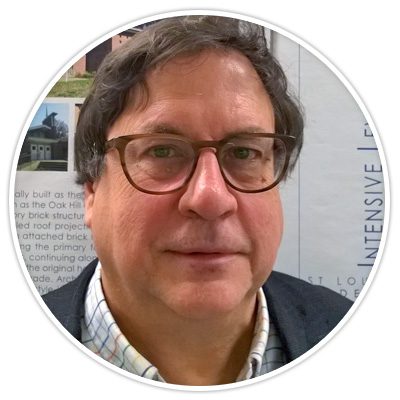 Alternate Juror
Alternate Juror
Don Roe is a forward-thinking urban planner who believes St. Louis’s bright future depends on a balanced “triple bottom line” that incorporates social, economic, and environmental outcomes. As the Executive Director of Planning and Urban Design for the City of St. Louis’ Planning and Urban Design Agency, Don has applied his forward-thinking approach to lead important community projects such as light rail, which helped pave the way for the Cortex Innovation Community.
Having held senior management positions in the agency since its inception in 1999, Don now oversees a planning staff that undertakes urban design and planning projects at both a district and city level. The agency maintains the City’s Geographic Information System and, via the Cultural Resource Office, conducts design and demolition review in Historic Districts. The department also provides data and research via both the direct production by staff of research reports based on data and best practices and by maintaining various web-based databases.
Previously, as a private consultant with both for profit and non-profit organizations, Don worked on variety of planning issues both in older Midwestern inner cities and rapid growth communities of the Western United States. Earlier in his career he was with a consulting firm engaged in planning projects in small New England communities.
